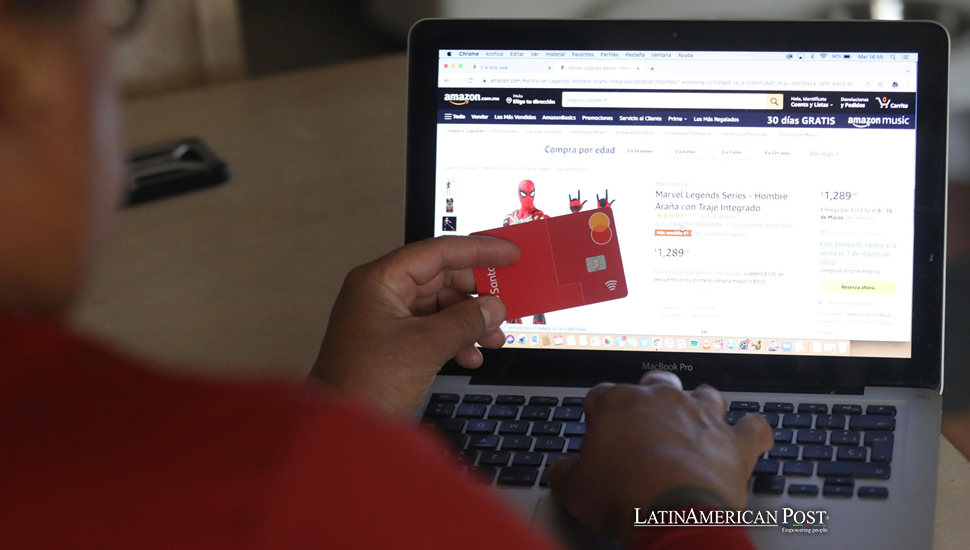Biometric Authentication Poised to Revolutionize Latin American E-Commerce

Surprisingly, 85% of Latin American shoppers want to stop using passwords for biometrics when shopping online. People really prefer biometric options. Mastercard’s new Payment Passkey is set to change transactions. It combines security with ease. This innovation could completely change the digital world.
From Passwords to Biometric Precision
Imagine logging into an online store without juggling complex passwords or one-time codes but with a simple fingerprint scan or face recognition. According to Mastercard research, that’s precisely what 85% of Latin American shoppers want, and now, they’re getting it. This shift to biometric authentication promises a more comfortable and convenient online shopping experience.
Mastercard’s upcoming Payment Passkey system, launching in January 2024, aims to replace outdated authentication methods with advanced biometrics. By working with Brazil’s Sympla and Colombian-founded payment orchestrator Yuno, the service will make digital payments faster, safer, and more intuitive.
For Yuno CEO Juan Pablo Ortega, this innovation is a game-changer. “Our goal always focuses on leading with solutions that simplify payments,” Ortega explains. “Payment Passkey provides consumers with a very smooth and secure experience. Businesses benefit from higher conversion rates.”
The launch arrives at a crucial moment. E-commerce in Latin America is thriving. Sales are expected to exceed $180 billion this year. Yet, with this growth comes the challenge of protecting millions of transactions from increasingly sophisticated cyber threats.
The End of Password Fatigue
We’ve all been there—struggling to remember another password or waiting for a one-time code that never arrives. For Latin America’s online shoppers, the advent of Payment Passkey offers a liberating relief from this password fatigue.
The system uses fingerprints or facial recognition to approve transactions, ensuring that only the rightful owner completes the transaction. Mastercard’s Payment Passkey also uses tokenization, replacing sensitive card data with encrypted tokens, which renders them useless to hackers. This robust security system is designed to provide a sense of safety and reassurance to the users.
“Security needs to change with consumer needs,” states Silvana Hernández, Mastercard’s Vice President for Latin America and the Caribbean. “Payment Passkey shows our promise to create a world where convenience doesn’t risk safety.”
The change addresses more than convenience. It solves a big e-commerce problem꞉: abandoned carts. Complex payment processes often frustrate customers and lead them to stop buying. Payment Passkey lessens these difficulties and supports more transactions that reach completion.
Why Biometrics Are a Win-Win
Many businesses may initially think that adding biometrics to their payment systems is costly. However, the benefits are clear: They experience less fraud and have happier customers, which ultimately outweigh the costs. The reduction in fraud alone can lead to significant cost savings, making the investment in biometric authentication a win-win for businesses.
Sympla is a Brazilian event platform that hosts many ticketed events each year. Mastercard’s Payment Passkey improves Sympla’s innovative image and highlights the platform’s reliability.
“This technology isn’t just about staying ahead,” says Marina Teixeira, Sympla’s Product Manager. “It is about building trust with users. Customers need to feel safe and valued in each transaction.”
Sympla’s decision reflects a more significant trend. In Latin America, biometric checks are becoming more common fast. A global survey found that 90% of people believe biometrics are the safest way to confirm identity, much higher than trust in traditional methods.
The Bigger Picture for Latin America
Mastercard’s Payment Passkey represents a significant advancement. It is part of a broader discussion about the region’s digital future. Latin America has long been a place of innovation. Yet, fast e-commerce growth needs to improve.
Online fraud has increased. Techniques like phishing and SIM swapping are now prevalent. Payment Passkey directly addresses these risks. It provides a level of security that traditional methods do not offer.
Yuno’s Ortega thinks the impact reaches beyond single transactions. “This tool is not only for today,” he emphasizes. It really prepares the way for a digital economy, which should be safer and more inclusive.
The collaboration between Mastercard, Sympla, and Yuno serves as a blueprint for how businesses can collaborate to tackle complex challenges. By focusing on security and user experience, they’re setting a new standard for what e-commerce should look like in Latin America—and possibly the world.
A Future Without Compromise
As Latin America embraces biometric authentication, the region is poised to redefine how digital commerce operates. Mastercard’s Payment Passkey stands as more than just new technology. It has a vision for a future where safety and ease blend well, and where e-commerce is not just a transaction, but an experience. This system could pave the way for a more connected, efficient, and secure digital economy in the region.
The benefits for consumers are obvious. People often forget passwords. Now, they don’t need to worry about this. Checkouts are really faster. Peace of mind truly goes with every transaction. For businesses, reducing fraud is important. Trust really matters, too. And for the region, it’s a step toward a more connected, efficient, and secure digital economy.
Als read: Servicios de Taxi liderados por Mujeres en Bolivia Transforman la Seguridad
As we look ahead, one thing is sure—biometrics aren’t just a trend; they’re the future of e-commerce in Latin America.




